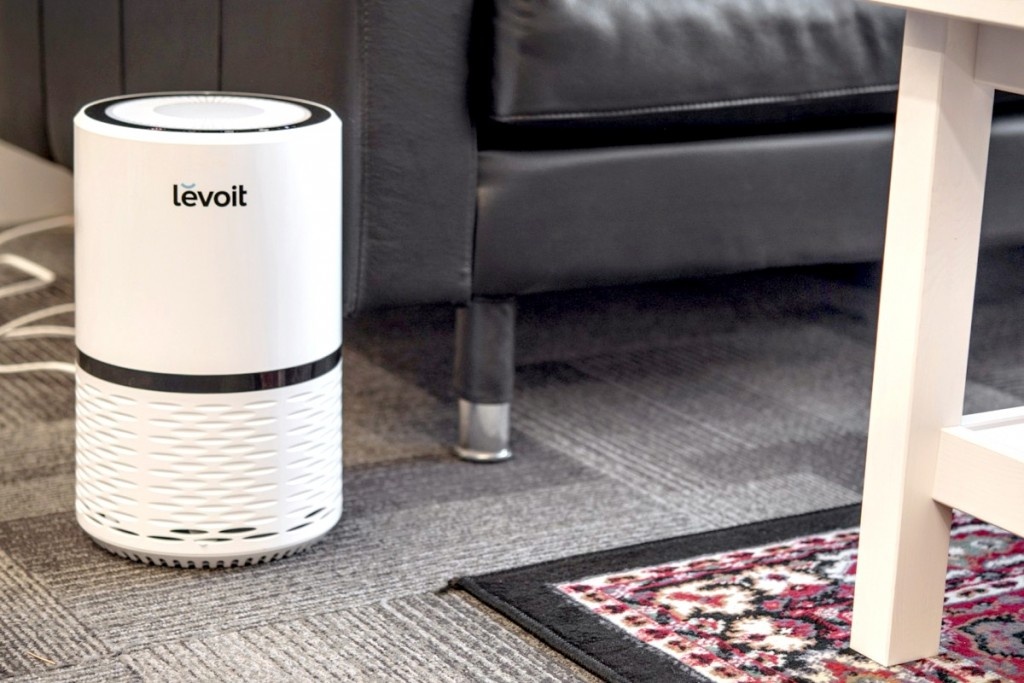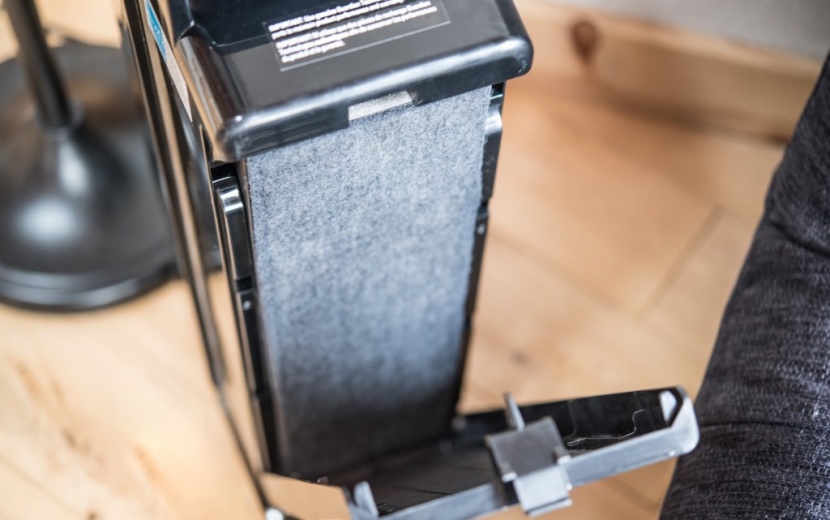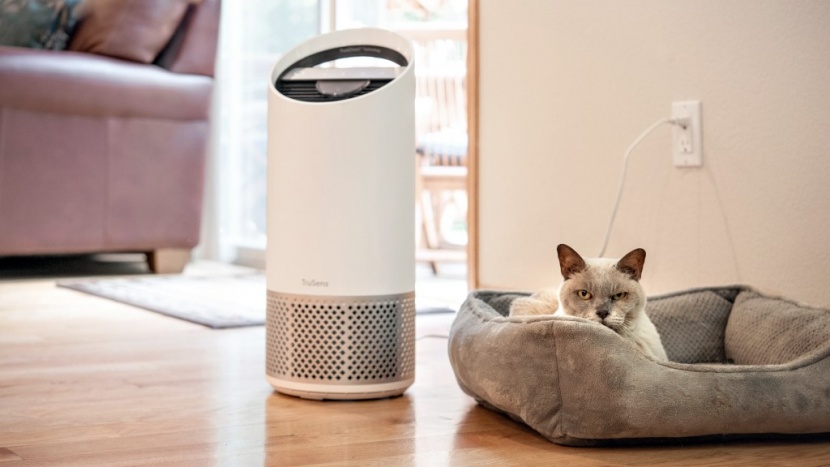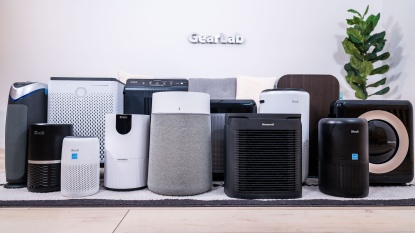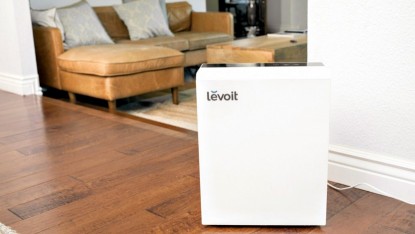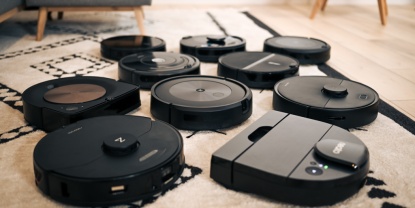Can HEPA air purifiers protect you from COVID-19? This is an important and complicated question that we think warrants a nuanced answer (which we've provided to the best of our ability below). However, if we had to distill it down we would say this: according to the best available research HEPA filter equipped air purifiers are effective at removing over 99% of viruses from the air that passes through them. Airborne transmission is now thought to be a more significant factor in the spread of the virus, suggesting that adding an air purifier to your home could be more beneficial than previously thought. However, an air purifier can only clean the air that actually reaches it, thus its real-world effectiveness is largely dictated by a number of different factors such as ventilation, airflow patterns, virus dispersal point, et cetera. Therefore, while a purifier can provide some protective benefit, it should not be used as a replacement nor in relaxation of the social distancing and sanitation guidelines outlined by the Centers for Disease Control (CDC). This means you should still limit the people entering your home to your immediate family unit, even if you have a HEPA air purifier. Additionally, if someone else must enter your home, proper social distancing and mask-wearing guidelines should still be followed.
Confusion Surrounding the HEPA 0.3 Micron Standard
An air filter must capture at least 99.97% of particles sized 0.3 microns to qualify as HEPA (for reference, the diameter of a human hair is generally about 50 microns, and we humans cannot see anything smaller than 40 microns). The COVID-19 virus is around 0.1 micron in size, which has led many to believe that HEPA filters would be ineffective at capturing the virus simply because it is smaller than 0.3 microns. In fact, you may have seen this stated elsewhere. While this makes intuitive sense, things at this microscopic scale are far less than intuitive.
The standard for HEPA filters was chosen as 0.3 microns because this size of particle is actually the hardest for the medium to filter. Particles measuring 0.3 microns are small enough to fit between many filter fibers, and are also heavy enough to have sufficient inertia to generally fly in straight lines. A straight flight path makes it more likely for a particle to pass through a filter without touching a fiber. Smaller particles have less inertia and are thus more at the mercy of microcurrents and other random forces. This causes their flight patterns to meander and resemble that of a confused hummingbird. These random and circuitous flight paths make it much more likely they will encounter a fiber when passing through a filter. Once they encounter a filter fiber that lack of inertia also makes them more susceptible to being trapped by forces like static electricity, as well as other microscopic forces. The same concept is what makes N95 masks so effective, which is perfectly illustrated in the video below:
This phenomenon is also supported by a NASA study that found HEPA filters to be quite efficient in capturing particles in the 0.1 micron size range.
What HEPA Air Purifiers Can and Can't Do
HEPA filters have been proven to capture more than 99.9% of the virus particles that reach them. However, even if your purifier happens to be right next to a source of virus particles, many of those particles are still going to settle on and contaminate surfaces before ever making it into the filter. Even the powerful air circulation systems of airplanes are not effective enough to prevent viruses from landing on nearby people or surfaces. Therefore social distancing and mask-wearing remain paramount, even if you have a top-ranked air purifier.
Airborne Transmission and HEPA
The CDC states that the virus mainly spreads person-to-person via airborne respiratory droplets. This suggests that HEPA air purifiers can offer a greater potential benefit in protecting those in your home from infection. It should be noted that for an air purifier to be effective virus particles must enter the filter before coming into contact with other people, so purifier placement, airflow patterns, ventilation, and a myriad of other factors have an impact on its efficacy. Due to these unknown variables a purifier should be thought of as a an added layer of protection rather than a primary strategy for avoiding infection. The CDC also states, “…the more closely a person interacts with others and the longer that interaction, the higher the risk of COVID-19 spread.” Not only does closer interaction increase the likelihood of person-to-person transmission, it also decreases the likelihood that the virus particles being spread by an infected individual will make their way into your air purifier before reaching other people. This further illustrates the point that, even with an air purifier present, proper social distancing and mask wearing protocols should be followed if someone outside your family must enter your home. With these basic practices in place, however, there is evidence that the addition of a HEPA air purifier to the equation can provide an added benefit.
Masks Work Towards the Same Goal as HEPA Purifiers
In ideal circumstances a HEPA-equipped air purifier will remove virus particles from the air before they come into contact with people. Wearing a mask accomplishes the same goal by preventing virus particles from becoming airborne in the first place. Masks are at a distinct advantage in this fight as they filter out virus particles at the source, whereas air purifiers must draw particles towards them before filtering them out. Therefore, mask-wearing remains an essential step in reducing the spread of the virus, with HEPA air purifiers offering an extra layer of protection.
So, Do You Need a HEPA Air Purifier?
While HEPA filters are quite effective at capturing the virus particles that come in contact with them, we believe they only add an extra layer of protection in most situations. Additionally, an air purifier should in no way be used as an excuse to relax your adherence to any of the CDC's guidelines, as these measures offer much greater potential benefit. If you're already following these guidelines, have the means, and want to do absolutely everything possible to protect yourself and your family, a HEPA air purifier offers an additional layer of protection. However, if the investment in an air purifier would at all hinder your ability to practice the CDC recommended social distancing then you should not buy one.
One group that is more likely to benefit from an air purifier are those with pre-existing respiratory afflictions. Air purifiers can remove potential lung irritants of all sizes from the air in your home, reducing respiratory symptoms and physiological stress. This, in turn, can reduce the overall strain on your immune system.
Related: How to Find an Air Purifier for Allergens, Smoke, and More
More Information Concerning HEPA Filtration of Viruses
COVID-19 is a fast emerging threat, thus to our knowledge no study specifically examining COVID-19 and HEPA filters has yet been conducted. However, other research indicates that HEPA filters can be quite effective in capturing similar airborne viruses. This capability is widely cited in the literature, a particularly relevant example being a study conducted by the University of Florida and the US Airforce Research Laboratory. In this study researchers fed a cloud of MS2 bacteriophages directly into a HEPA filter. The MS2 bacteriophage is a virus that infects bacteria and occupies a similar size range as the COVID-19 virus. It was found that more than 99.9% of the MS2 bacteriophages were caught by the HEPA filter. Due to the size similarities of the COVID-19 virus and the MS2 bacteriophage we can expect HEPA filters would catch many COVID-19 particles as well.
Conclusion
While HEPA filters can capture the vast majority of virus particles they encounter, they likely provide only incremental protection against infection because of the multitude of variables encountered in real-world scenarios. Additionally, while purifiers can add some extra protection in certain situations, they should not be used as a replacement for any social distancing, mask use, or sanitation guidelines put in place by the CDC or state and local governments.
Don't forget to include a top-rated face mask in your arsenal of measures you take to avoid germs that can make you sick. Sometimes it is best to think of staying healthy as a layering system of preventative measures.
At TechGearLab we are committed to providing the best possible information to our readers, and that mission now feels more poignant than ever. If you have any questions about how consumer electronics can or cannot be of service as we all react to the global pandemic, please feel free to reach out to us. We'll do our very best to collate the best available research and provide you with a meaningful and actionable answer.

